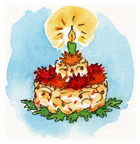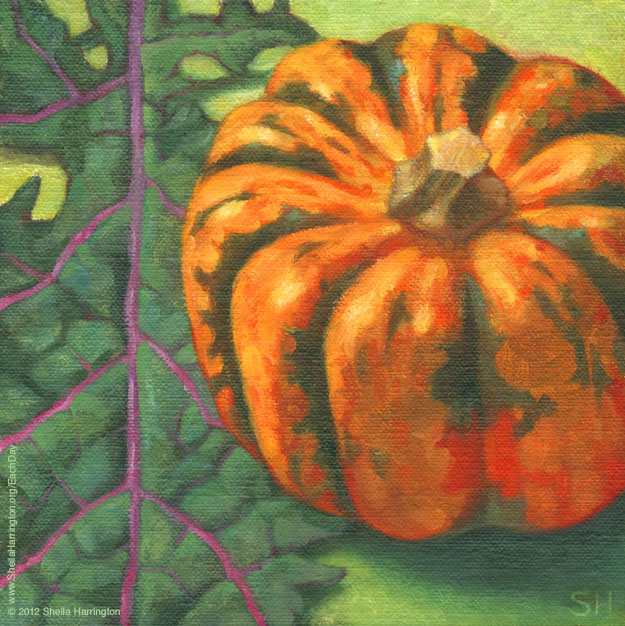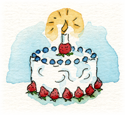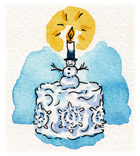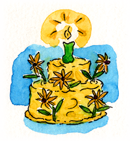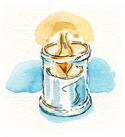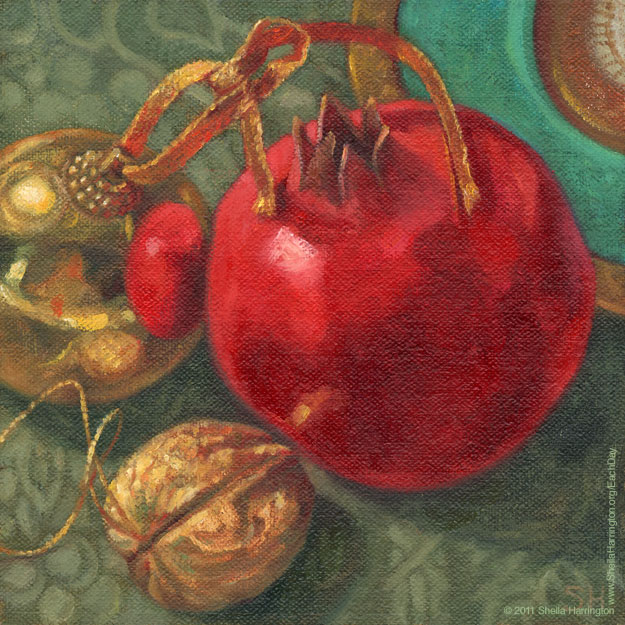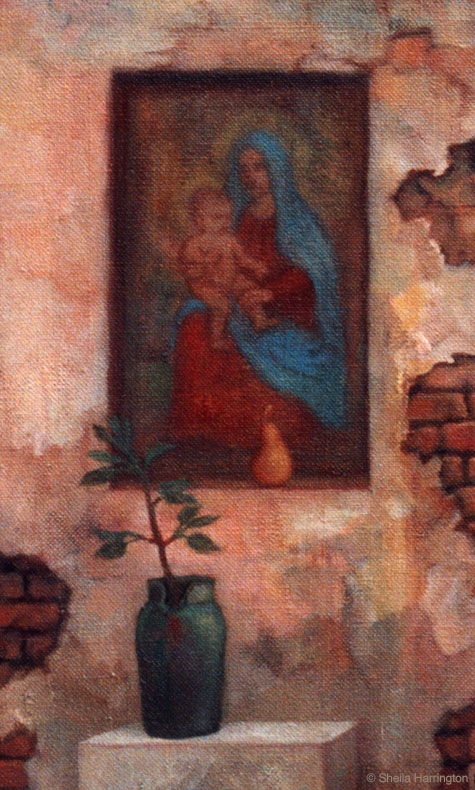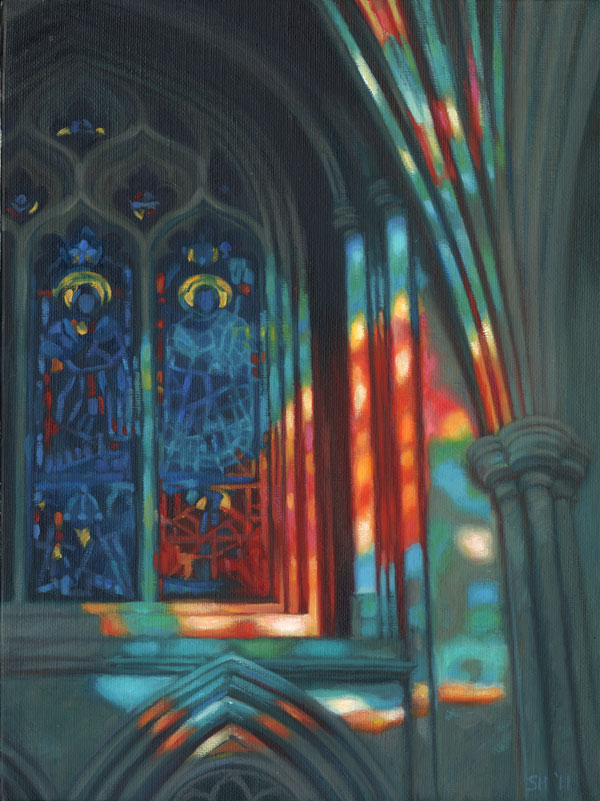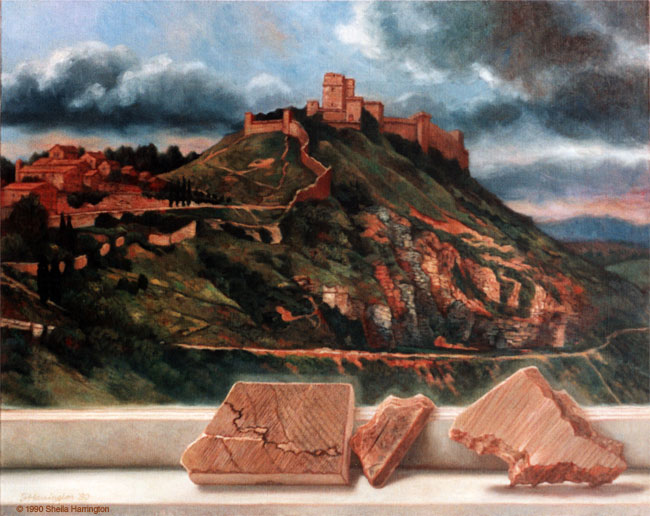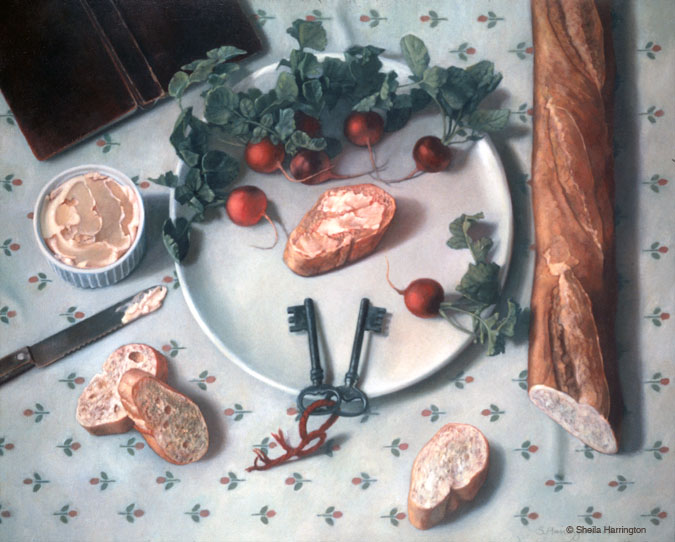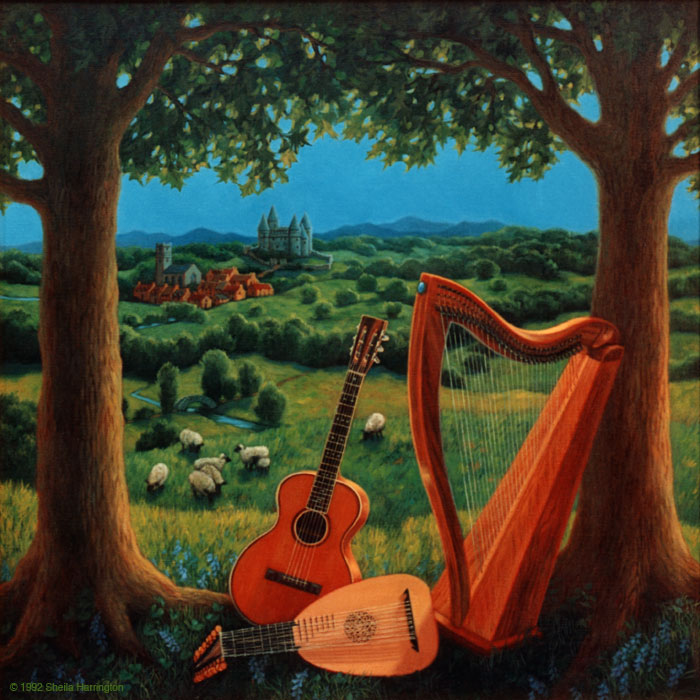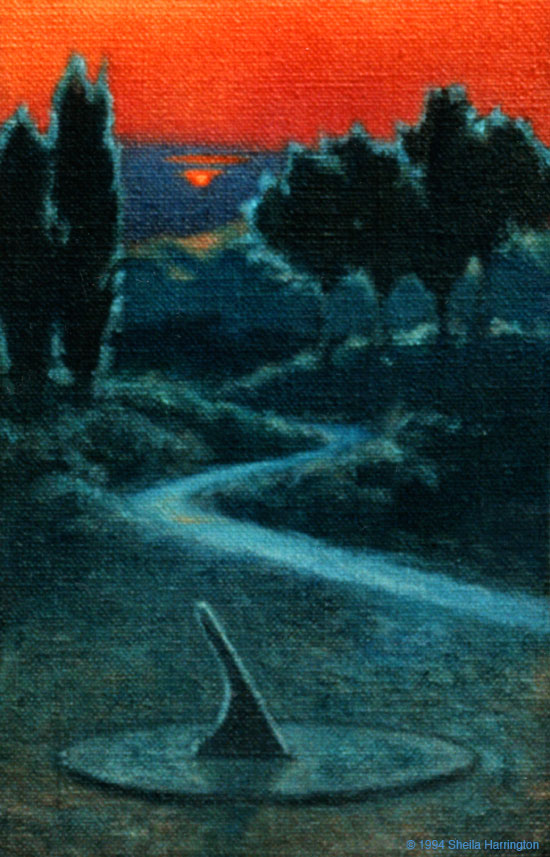In honor of much-beloved poet and storyteller Eleanor Farjeon (1881-1965), whose birthday it is today, I post her poem “Vegetables” and a new painting.
For a brief bio and other Farjeon poetry, with accompanying paintings, please see Morning Has Broken and Cats.
The country vegetables scorn
To lie about in shops,
They stand upright as they were born
In neatly-patterned crops;
And when you want your dinner you
Don’t buy it from a shelf,
You find a lettuce fresh with dew
And pull it for yourself;
You pick an apronful of peas
And shell them on the spot.
You cut a cabbage, if you please,
To pop into the pot.
The folk who their potatoes buy
From sacks before they sup,
Miss half of the potato’s joy,
And that’s to dig it up.
—Eleanor Farjeon


